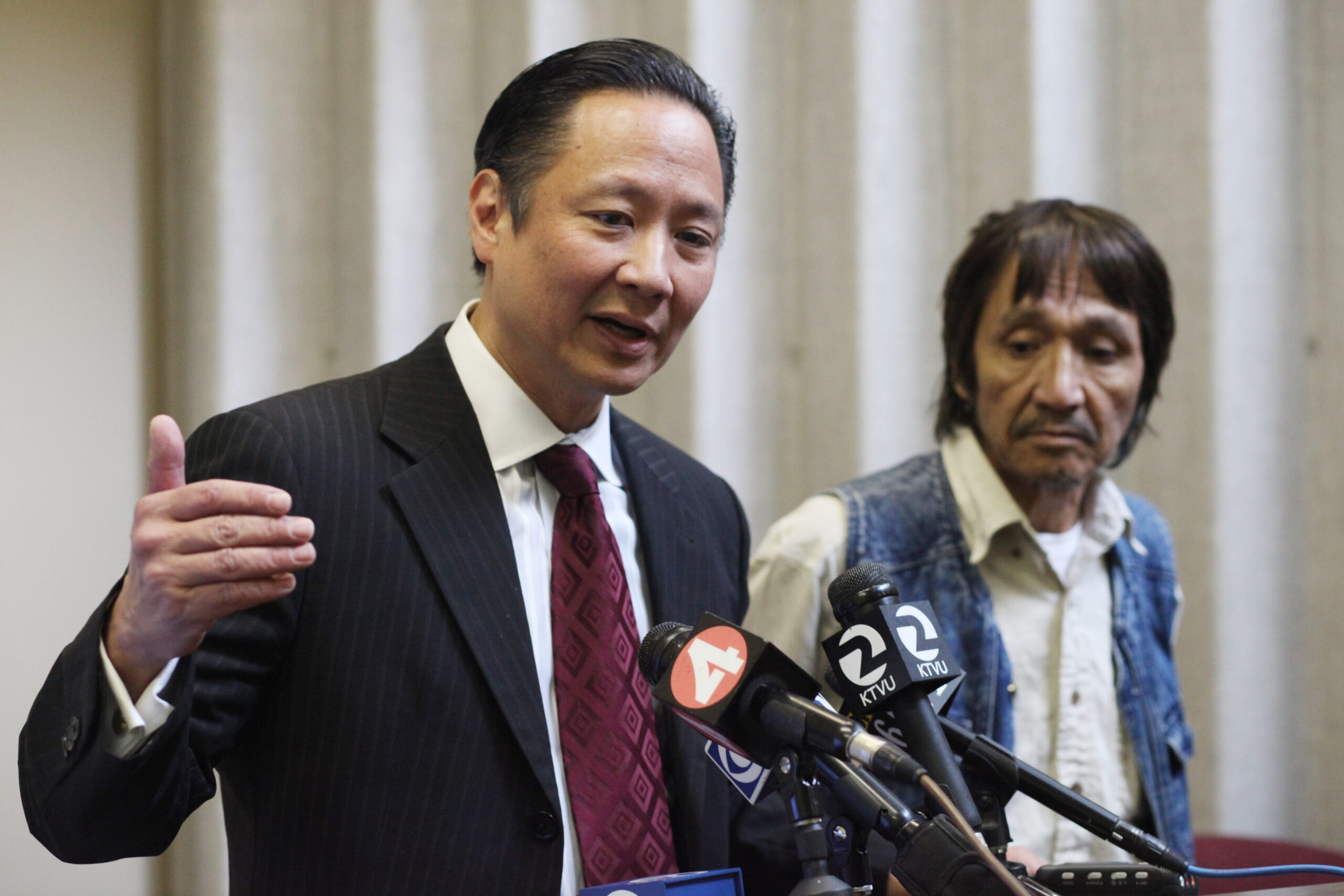Years after San Francisco police illegally searched a reporter’s home to find out who released a report about the death of Public Defender Jeff Adachi, an officer is outing himself as the suspected source of the leak.
Officer Douglas Tennenbaum reveals in a new lawsuit that police watchdogs thought he gave freelance journalist Bryan Carmody an internal report about Adachi’s death. An autopsy later found he died by cocaine-and-alcohol-induced heart failure at a Telegraph Hill apartment in February 2019.
The leaked report included salacious details about Adachi’s death, raising suspicion that it was shared in retaliation to the late public defender’s persistent criticism of San Francisco police.
Under pressure from City Hall to uncover the source, SFPD went so far as to bring a battering ram to Carmody’s front door and conduct several searches that violated California’s protections for journalists.
The cascading series of events brought national shame on the department.
In the fallout, Tennenbaum says the city’s watchdog agency, the Department of Police Accountability (DPA), blamed him for the leak and tried to punish him. He alleges the DPA wrongly based its investigation into him on evidence from the illegal searches.
Tennenbaum, who joined SFPD in 2005, was transferred from motorcycle patrol to the department’s horse stables in August 2020 when Police Chief Bill Scott stripped him of his badge and gun. The stables for the department’s mounted unit are one of the undesirable places where SFPD stashes troubled officers.
“Disarming and seizing a star and ID is a very serious matter,” reads Tennenbaum’s lawsuit filed by attorney Christopher Shea. “For a police officer, it is the highest form of public embarrassment.”
Tennenbaum stayed at the stables until returning to patrol in April 2022. By then, prosecutors could no longer file felony charges against him over the leak because the statute of limitations expired.
His lawsuit says the DPA dropped its non-criminal case against Tennenbaum within days of filing it, and SFPD investigators separately closed an internal investigation into him citing a lack of “sufficient evidence.”
All the while, Tennenbaum alleges he was passed over for promotion. He is suing the city for wages that he would have received working overtime as a motorcycle officer and if promoted to sergeant.
Tennenbaum received a message from The Standard but was not immediately available to comment. He did not admit or deny leaking the report in his lawsuit.
A spokesperson for the City Attorney’s Office, which is expected to defend the SFPD and DPA in court, said the office was “reviewing the complaint and will respond in court.”
DPA Director Paul Henderson could not discuss the details of the case but said, “I’m confident that we did what we were supposed to.”
SFPD declined to comment on personnel matters and an open lawsuit.
The lawsuit is not the only one spurred by Adachi’s death.
In 2020, a top official with the Chief Medical Examiner’s Office sued former City Administrator Naomi Kelly for firing him because he resisted her request to change Adachi’s autopsy report. Kelly’s spokesperson at the time called the lawsuit “a complete fiction.” San Francisco is poised to pay $436,000 to settle that case.
